France seeks control of Yemen gas facility to reduce reliance on Russian fuel: Former minister
A former Yemeni foreign minister says French Foreign Legion, a military force comprising of foreign nationals, has arrived in the impoverished Arab country’s southern province of Shabwah to secure control of a gas facility there.
In a post on his Twitter account on Wednesday, Abu Bakr al-Qirbi said there are French “preparations being made to export gas from the Balhaf facility … in light of increased international gas prices,” in an attempt to reduce Europe’s reliance on Russian gas amid the global energy crisis exacerbated by the conflict in Ukraine.
He also suggested that the French move "could be the reason for recent clashes in Shabwah," noting that the arrival of French forces to the area is meant to “provide protection for the facility.”
تتوالى المعلومات حول تحضيرات تجري لتصدير الغاز من منشأة بلحاف وأنه قد يكون سبب احداث شبوة وتحرك فرنسا النشط وتفاوضها مع بعض دول الاقليم واطراف الصراع اليمنية لتصديره في ظل ارتفاع اسعار الغاز دوليا ولتخفيف الضغط الروسي على اوربا وتوفير الحماية للمنشاة عبر الفيلق الفرنسي الاجنبي
— Dr Abubaker Alqirbi. الدكتور ابوبكر القربي (@AAlqirbi) August 16, 2022
The new development came after in July, Paris and Abu Dhabi signed an energy cooperation deal for the joint production of liquefied natural gas (LNG).
According to reports from earlier in the year, the energy cooperation between the two countries is aimed at securing control over Yemeni gas resources through the Balhaf facility, which is owned by French multinational oil and gas company, TotalEnergies SE.
Following Qirbi’s comments, the parliament of the Sana’a-based National Salvation Government warned about the suspicious movements of American and French troops in the occupied areas of southern Yemen.
The Yemeni parliament’s presiding board then issued a statement, cautioning against suspicious activities of forces affiliated with the US and France — two of the main Western supporters of the Riyadh-led war against Yemen, in the country’s southern occupied cities.
The parliament also called for vigilance in the face of “treacherous” attempts by the Saudi-led coalition of aggressors to hinder the implementation of the UN-mediated truce, which first came into effect in April.
It further warned against the suspicious role of the so-called presidential leadership council set up by Saudi Arabia and the UAE, which the legislature said was devised to advance the agenda of the US, UK, and Israel to divide Yemen and undermine its unity, sovereignty, security, and stability.
The Yemeni parliament added that it held members of the so-called presidential council responsible for the consequences of “their treacherous actions at home or abroad since they do not represent the Yemeni people” and have no legal legitimacy.
France has recently fallen under scrutiny over its involvement in the Saudi-led war against Yemen.
Back in June, a number of rights groups announced the filing of a lawsuit in a Paris court against three French arms-producing companies, alleging that they are complicit in war crimes committed in Yemen for the sale of weapons to Saudi Arabia and the United Arab Emirates (UAE).
The Yemeni people have also demanded the withdrawal of all foreign forces from the country, including recently deployed US military troops, who are there under the pretext of fighting terrorism and aiding the Saudi-led coalition.
The latest development comes as the Yemeni National Salvation Government said the Saudi-led coalition has plundered billions of dollars worth of Yemen’s oil over the past four years.
Saudi Arabia launched the devastating war on Yemen in March 2015 in collaboration with its Arab allies and with arms, logistical, and political support from the US and other Western states.
The objective was to reinstall the Riyadh-friendly regime of former Yemeni president, Abd Rabbuh Mansur Hadi, and crush Yemen’s Houthi Ansarullah movement, which has been running state affairs in the absence of a functional government.
While the Saudi-led coalition has failed to meet any of its objectives, the war has killed hundreds of thousands of Yemenis and spawned the world’s worst humanitarian crisis.
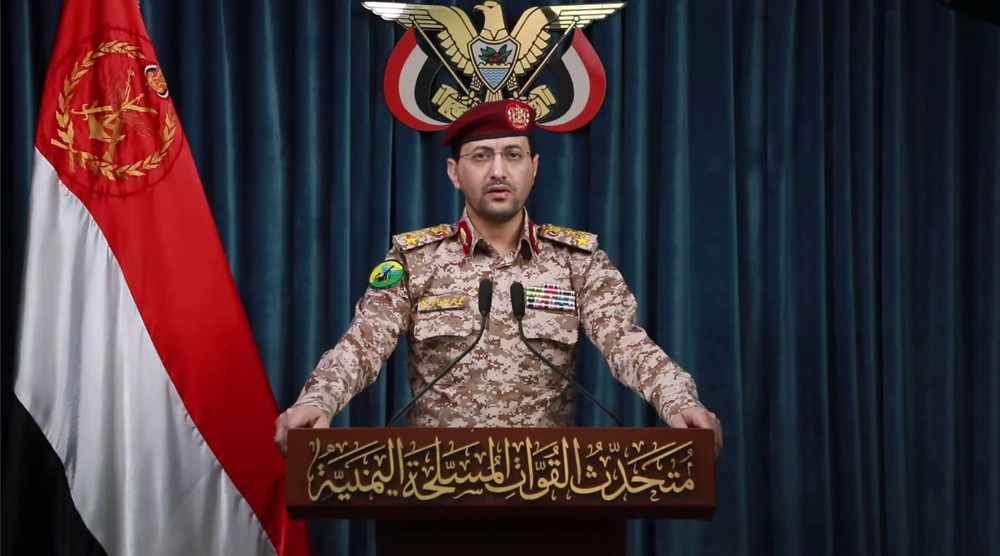
Yemeni forces target Israeli Nevatim Airbase in retaliatory missile strike
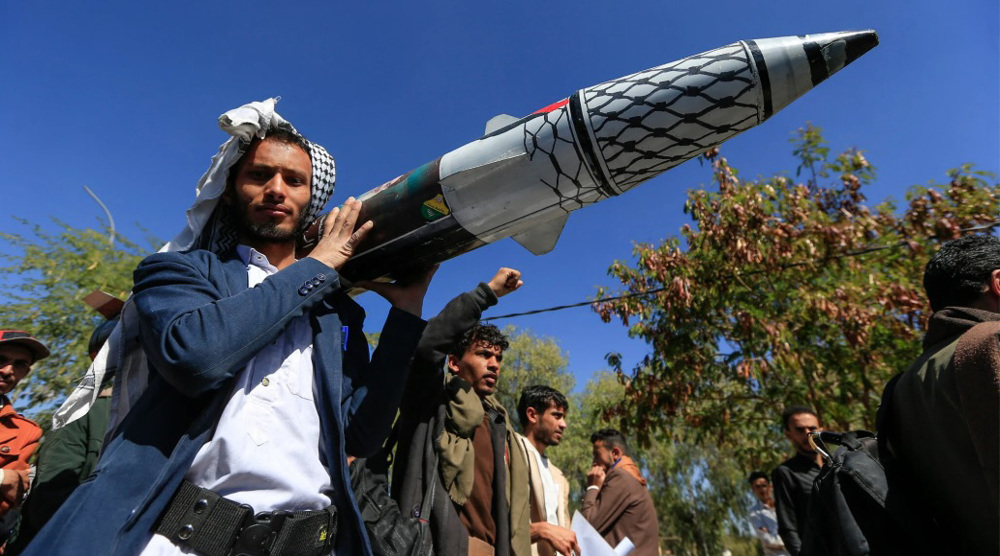
Yemeni ballistic missile triggers sirens across Israeli-occupied territories
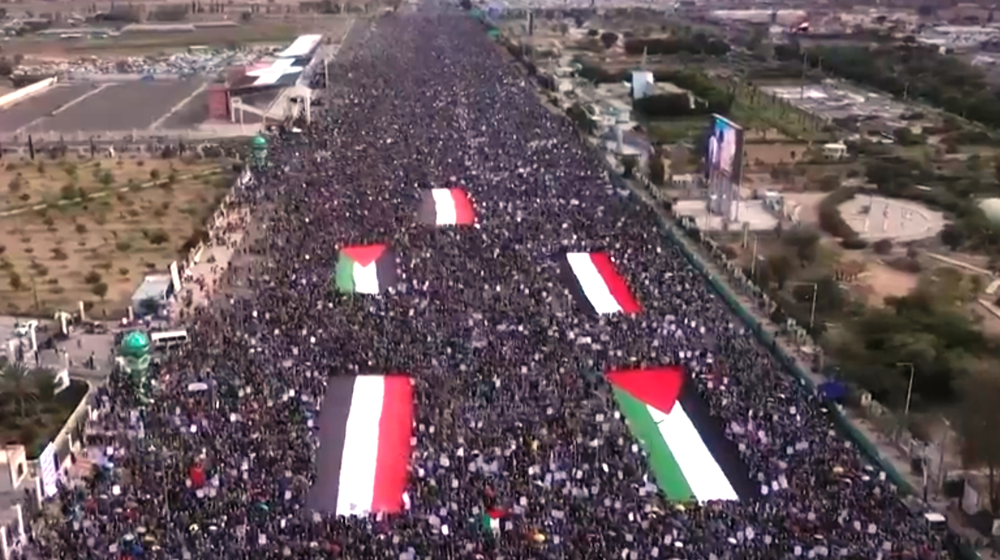
Yemenis hold nationwide rallies to condemn US aggression, support Palestine
VIDEO | Paris hosts ‘end famine’ rally in support of Gaza
Global reactions, offers of assistance pour in after huge deadly explosion in S Iran
Iran pres. stresses collective, effective fight against terrorism in calls with India, Pakistan PMs
VIDEO | Iran-US indirect talks
Iran declares holiday in Bandar Abbas port as fire still raging
VIDEO | NY protesters demand end to genocide on Global Day for Gaza
VIDEO | Pope Francis funeral mass held in St. Peter's Square
VIDEO | UK education activists focus on decolonization


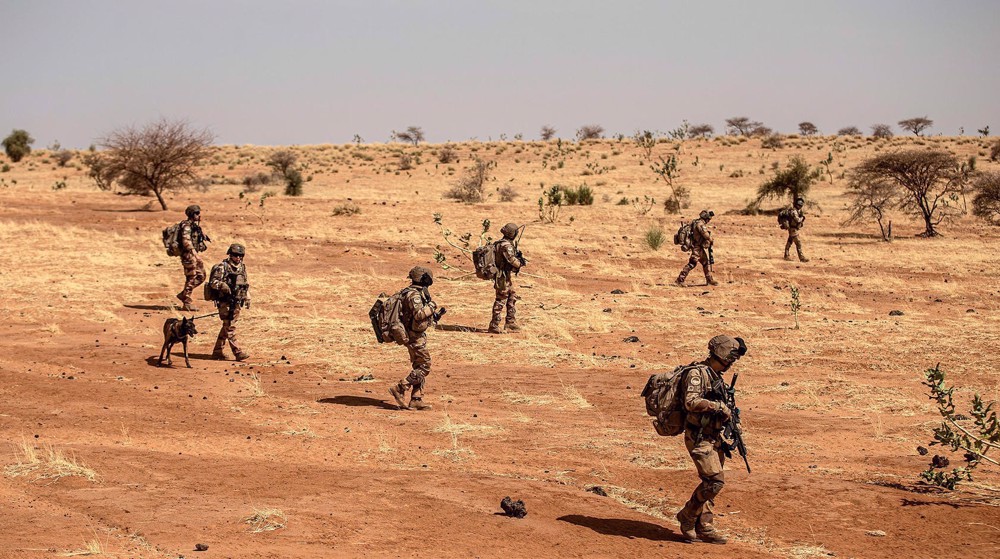
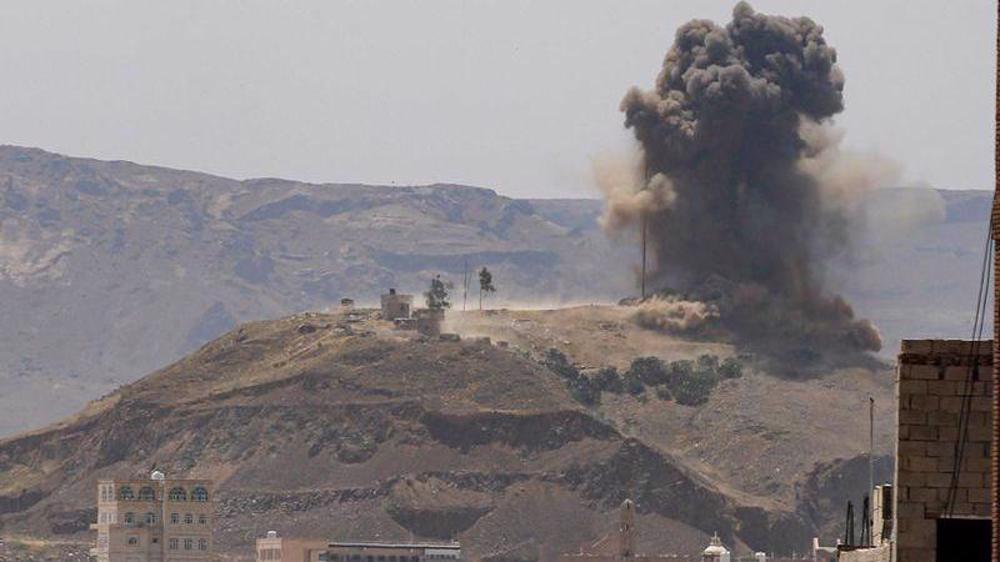
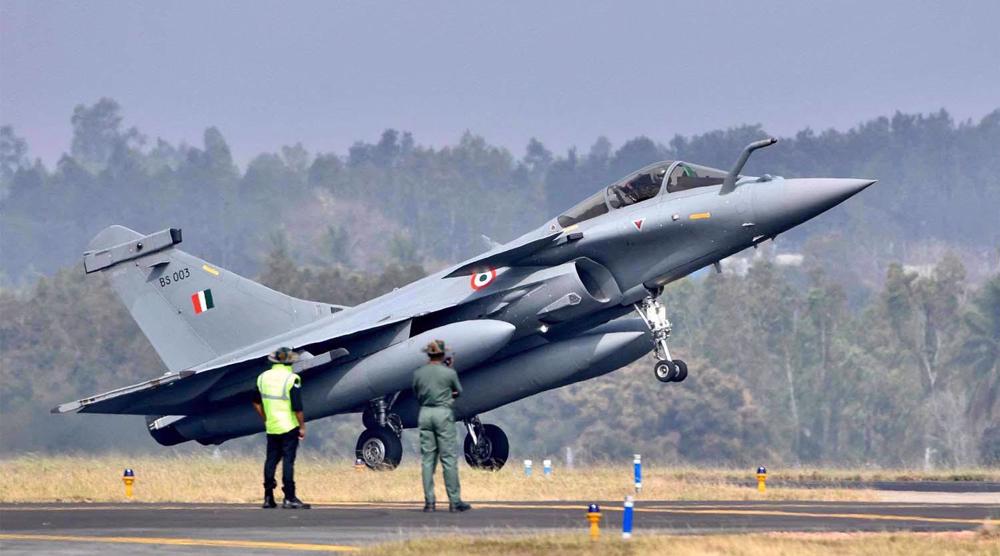
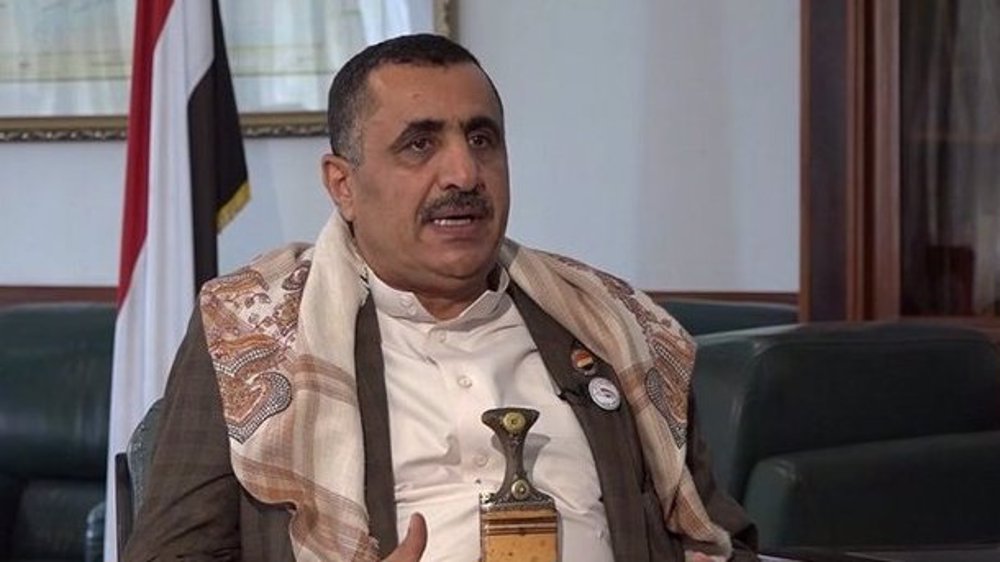



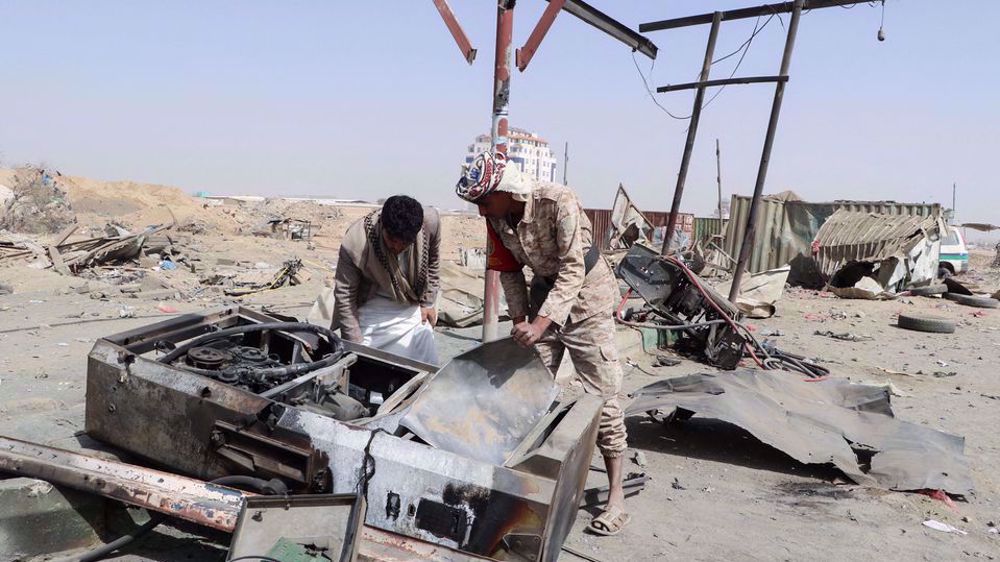
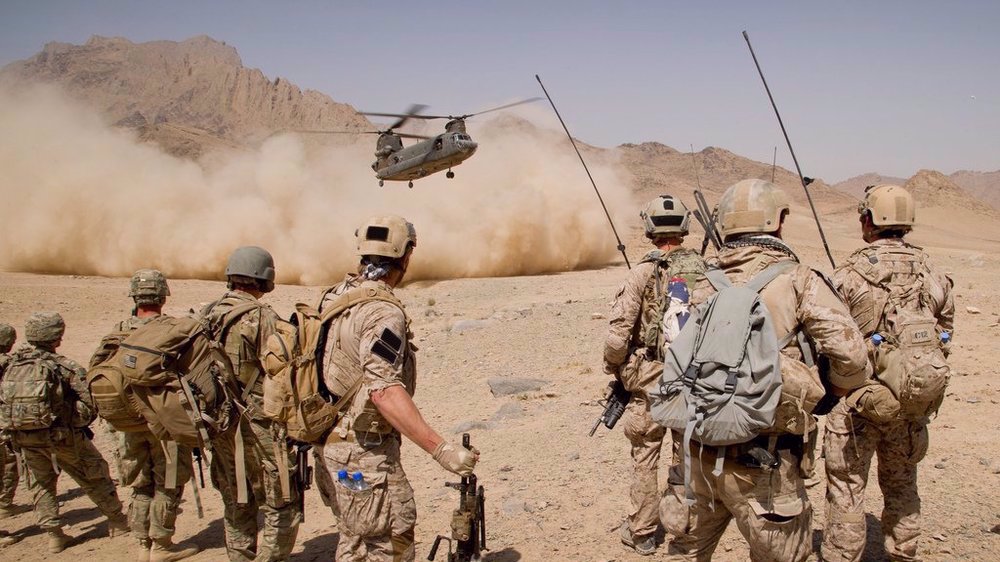

 This makes it easy to access the Press TV website
This makes it easy to access the Press TV website